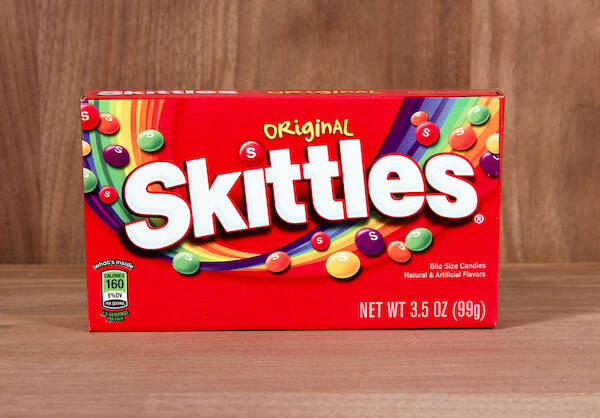
California is the first state in the nation preparing to ban five food additives found in many processed foods and candies and that have been linked to hormone disruption, cancer, and other health problems. Assembly Bill 418, which has been called the “Skittles Bill” because the ingredients are found in popular candies such as Skittles, Sour Patch Kids, and Hot Tamales, targets the use of red dye No 3, titanium dioxide, brominated vegetable oil, potassium bromate, and propyl paraben.
A reason for the ban, according to supporters of the Bill, is that the Food and Drug Administration has not adequately evaluated the safety of these ingredients and that there exists a loophole that is allowing “thousands of chemicals to enter the U.S. food system without proper safety reviews.” The Bill was introduced by Assembly members Jesse Gabriel and Buffy Wicks, and co-sponsored by the Environmental Working Group and Consumer Reports.
Read about 7 scary food additives to avoid
Although the California Assembly passed Assembly Bill 418 in May 2023, it must still pass the California Senate, and opposition to the bill has been heavy from many food industry groups, including the California Grocers Association, American Bakers Association, and the International Association of Color Manufacturers. However, dozens of health and consumer safety groups are supporting the bill, and if all the advocates are successful, the ingredients will be banned by 2025. In the meantime, proponents of the Bill hope other states will follow suit. Already, lawmakers in New York and Illinois have taken steps to reevaluate food additives.
The five additives to be banned
Assembly Bill AB 418 prohibits anyone or any entity from “manufacturing, selling, delivering, distributing, holding, or offering for sale” food products for human consumption that contain any of the following five substances:
- Red dye No. 3: also known as E127 or RF7C Red No. 3. It has been shown to cause cancer in laboratory animals when used in high doses. The Food and Drug Administration has known since the 1980’s that red dye No. 3 causes thyroid cancer in animals, which lead to the organization banning the dye from cosmetics in 1990. Yet the dye is still used in food, especially candies, and has been linked to hyperactivity in children.
- Titanium dioxide: used to make some foods whiter, such as cottage cheese, coffee creamer, white sauces, chewing gum, and cake frostings. It contains nanoparticles, which makes it easy for them to damage cells. A recent study has linked titanium dioxide to a greater risk of colon cancer.
- Potassium bromate: strengthens dough and is commonly used in bread and other baked goods. It has already been banned in the European Union, Canada, and many other countries. A 2023 research article notes that prolonged regular consumption of breads containing this additive is associated with an increased risk of cancer.
- Brominated vegetable oil: a plant-derived triglyceride mixture that helps prevent separation of ingredients in some beverages, especially those containing citrus. Animal studies suggest it can cause reproductive and behavioral problems when consumed at high doses. It’s been shown to cause rash, acne, fatigue, abdominal pain, loss of appetite, and cardiac arrhythmias.
- Propyl paraben: a preservative that has shown in a recent study published in Endocrinology to disrupt hormones. The Environmental Working Group notes that propylparaben, which can be found in various baked desserts and tortillas, can alter gene expression and affect fertility.
According to independent consultant and food additives researcher Maricel Maffini, none of the chemicals named in the California bill are necessary for food uses. Food manufacturers can still produce any of the products they make that now use these chemicals as long as they don’t include the substances. In European Union countries, Skittles and Sour Patch Kids are free of the banned substances.
Read about 5 gnarly food preservatives to avoid
Food companies stepping up
Some food manufacturers and industry leaders have already eliminated harmful substances from their products and menus. Dunkin Donuts reported in 2015 that it was dropping titanium dioxide from its products. In 2017, Panera Bread said it would no longer use artificial sweeteners, flavors, colors, or preservatives from artificial sources. In addition, there are many food manufacturers who do not and/or have never used artificial ingredients in their products and/or provide all organic foods. And there are more than those listed here!
Bottom line
The California Skittles Bill is an attempt to eliminate five harmful food additives from the food supply in that state. Beyond helping to improve food safety in one state, it is hoped that lawmakers at both the state and federal levels, as well as food producers, will step up and initiate measures to remove other harmful food additives from the marketplace.




